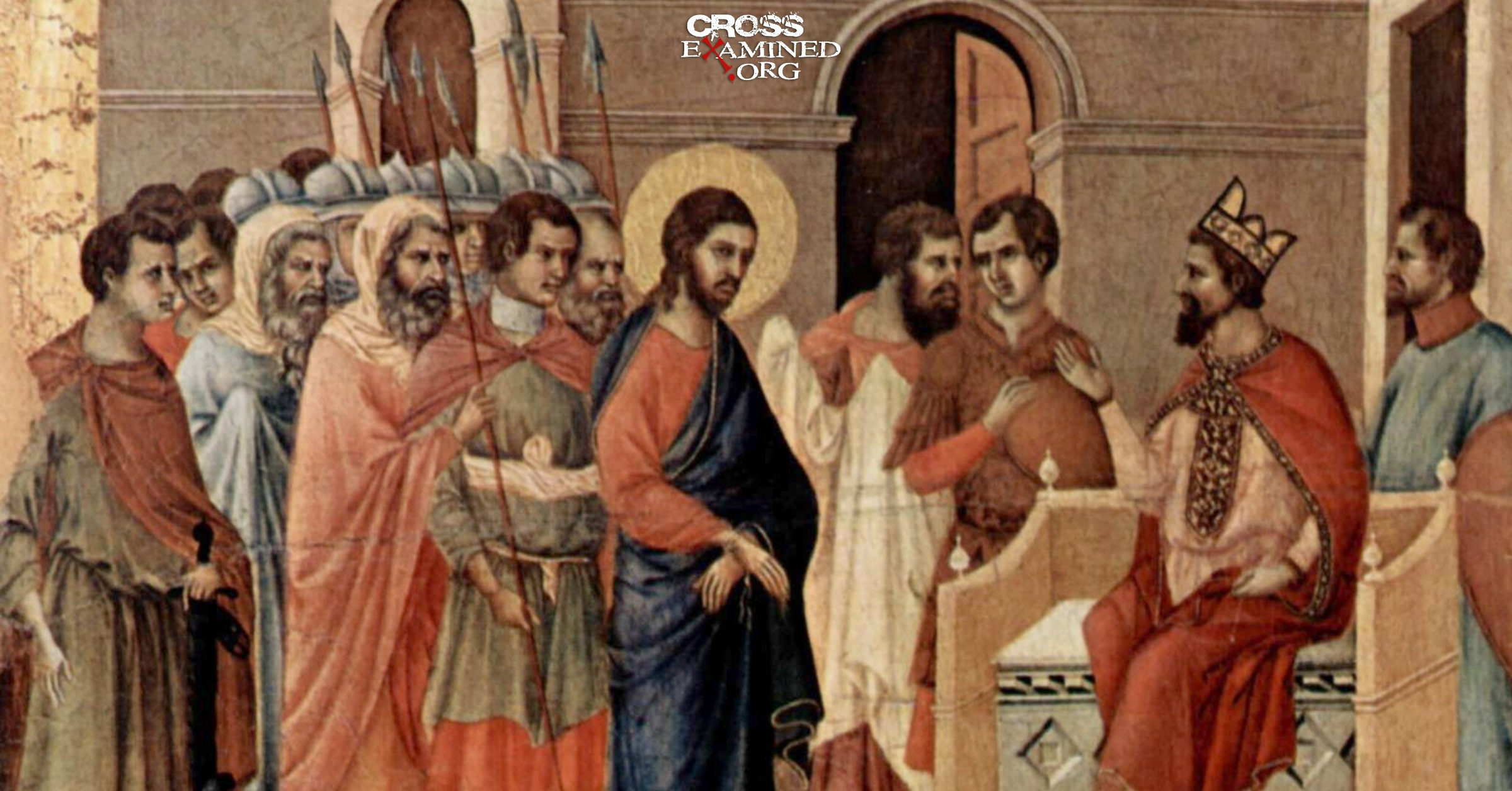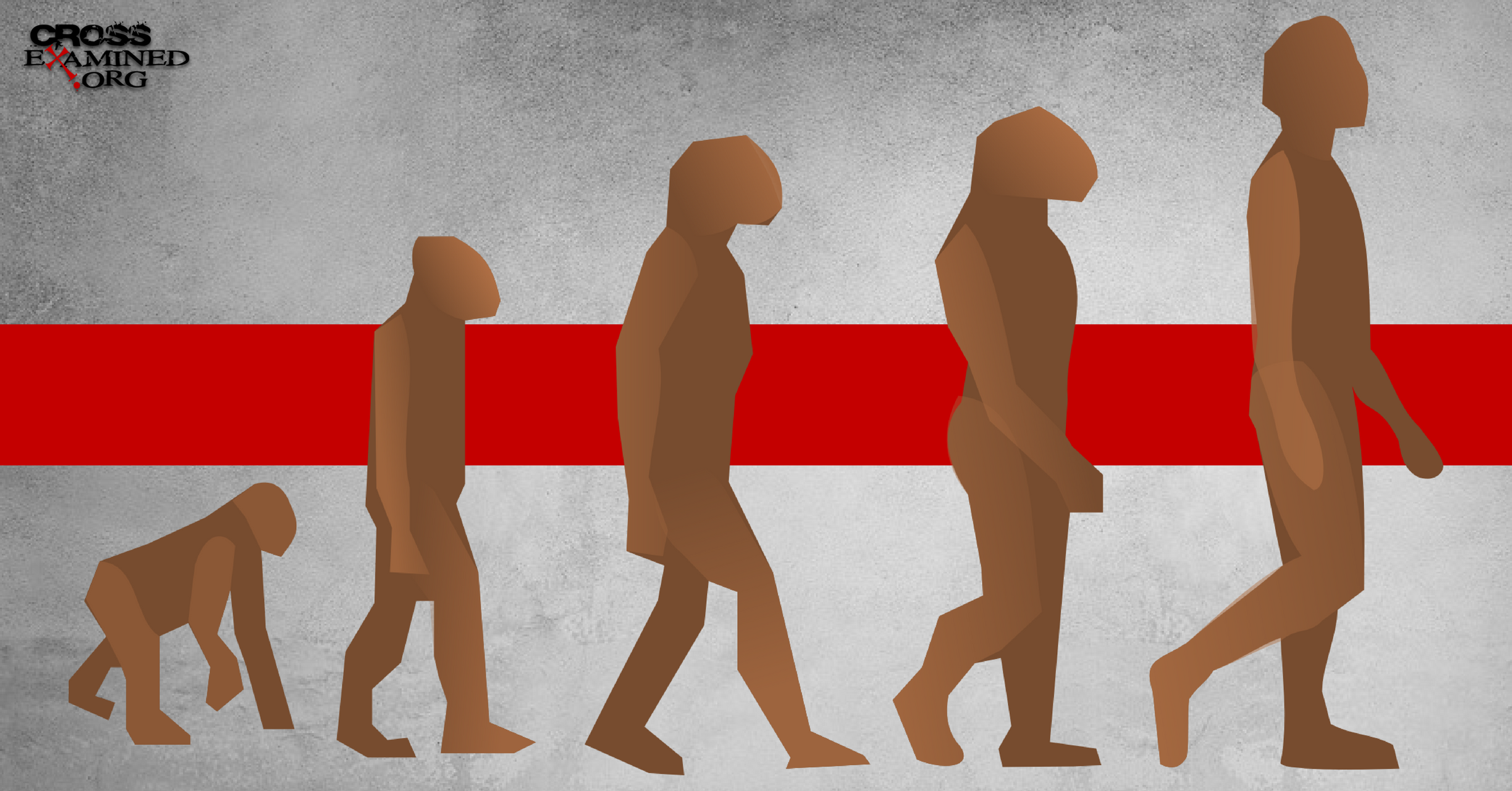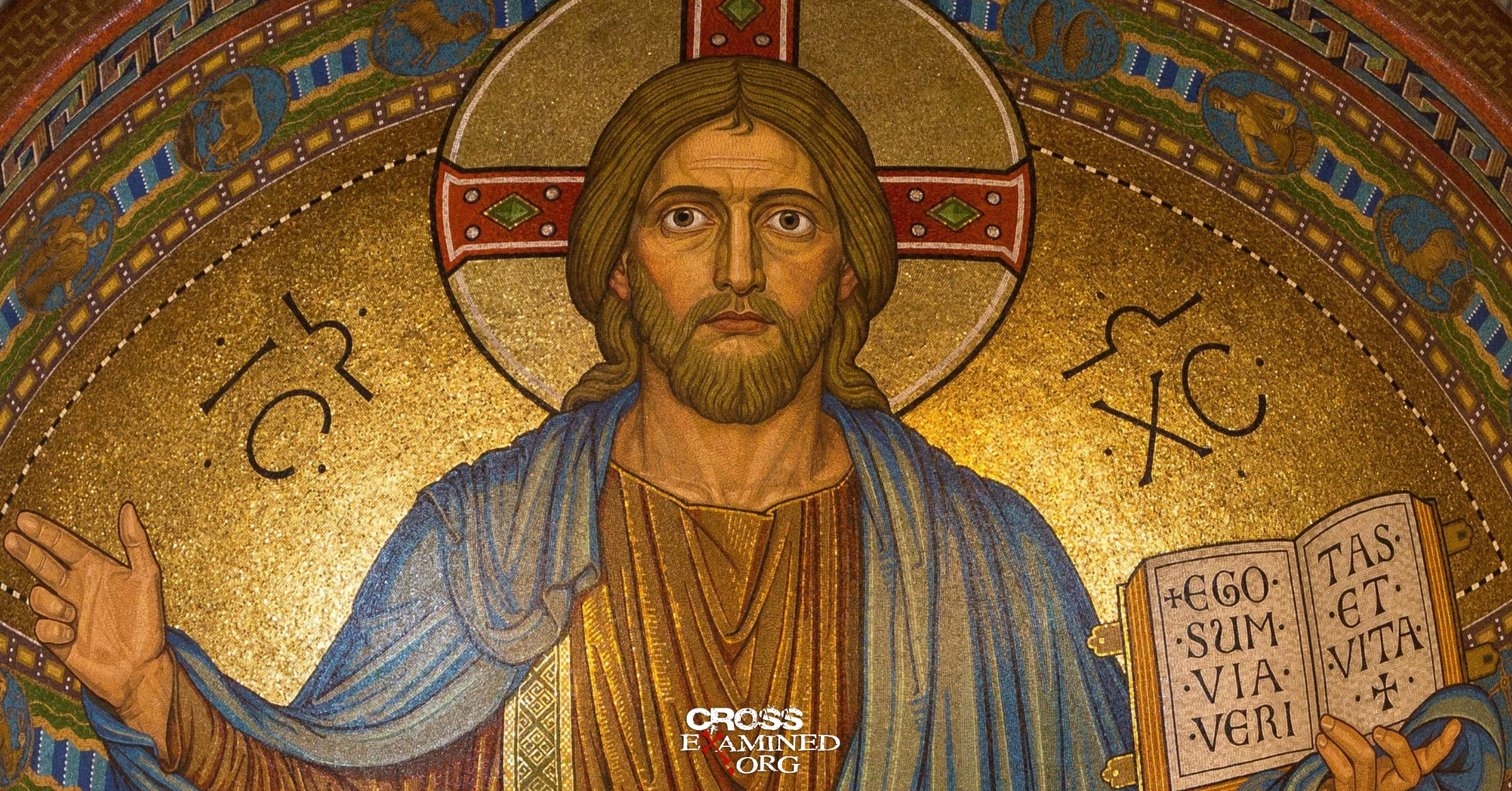I don’t know why, but 99% of the atheists I talk to on the Internet hold the ridiculous position that Jesus never existed. But then, they’re atheists. I don’t expect them to believe in the divinity of Jesus. How could they? If they did, they wouldn’t be atheists. They would be Christians. No. I’m not talking about believing in the divinity of Jesus here, but about believing in Jesus as a historical figure. That’s what I find so ridiculous. Those who deny the Christ myth are clinging to a historical hypothesis that would make them the laughing stock of every university in the world. Almost every scholar of ancient history holds this view, and those who are in a minority, a minority, a minority are rightly seen as charlatans. By the way, those who believe that Jesus was a flesh-and-blood historical figure are not Christians. Atheist and agnostic scholars also believe that Jesus was a historical figure. Bart Ehrman, an agnostic and one of the most outspoken critics of Christianity, believes that Jesus was a real, flesh-and-blood historical person. He writes: “I think the evidence that Jesus existed is so overwhelming that it is foolish to claim otherwise. I don’t know anyone who is a responsible historian, who is trained in the historical method, or anyone who is a biblical scholar and who works that way, who gives any credence to any of that.”
Why is this the case? Why do almost all scholars of ancient history believe that Jesus was a flesh-and-blood figure in history? Is the evidence for Jesus’ historicity as overwhelming as agnostic scholar Bart Ehrman claims? Let’s see.
*The existence of Jesus is more than amply attested in secular sources, non-Christian extra-biblical sources, and in the New Testament documents.
Jesus is mentioned in so many sources in the first century and early second century that it is absurd to claim that He never existed. What are those sources? Well, we have the gospels and the epistles of the New Testament. But everyone already knows them, so I am not going to cite them. Instead, I am going to cite merely the non-Christian, extra-biblical sources.
1: Flavius Josephus
Josephus mentions Jesus (and other New Testament figures) in his writings. In Flavius Josephus’s Antiquities of the Jews (written in 90 AD), Josephus writes:
“About that time there was a certain Jesus, a wise man, if he may be called a man, for he was a wonder-worker, a teacher of men who welcomed the truth. Many of the Jews and many of the Gentiles were attracted to him. They called him the Christ, and when Pilate, acting on the suggestion of the chief men among us, had condemned him to the cross, those who had loved him from the beginning did not forsake him; he appeared to them resurrected on the third day, just as the divine prophets had foretold, and they said ten thousand other astonishing things about him. The existence of Christians, the name they took from him from that time on, continues to this day.”
“Antiquities of the Jews”, 18.3.3
Second, in Book 20 there is what might be called a brief reference to Jesus in a paragraph describing the murder of Jesus’ brother James at the hands of the high priest Ananus.
“But as we said, the young man Ananus who received the high priesthood was of a courageous temper and exceptionally bold; he was a partisan of the Sadducees, who were severe in passing judgment on all the Jews, as we have already shown. Since Ananus was of such a temper, he thought he had now a great opportunity since Festus was dead and Albinus was still on the way; so he formed a council of judges, and brought before them the brother of Jesus, the one called Christ, whose name was James, together with others; and having accused them of being offenders, he handed them over to be stoned.”
Here we have an early secular source that mentions Jesus and a handful of followers who clearly believed He was the promised Messiah (or Christ) of their Jewish religion. It also mentions Pontius Pilate and says that Jesus was crucified by Pontius Pilate at the suggestion of the Jewish Sanhedrin. This is pretty good non-Christian and non-Biblical evidence that affirms the existence of Jesus, the existence of Pontius Pilate, that Jesus had a handful of followers who considered Him to be the Christ, and that the Sanhedrin brought Jesus before Pontius Pilate and that he condemned Him to die on a cross. Josephus also claims that Jesus had a brother named James who was murdered by the Sanhedrin.
“BUT!” The one who believes that Christ is a myth may protest . This passage has obviously been interpolated by a Christian. Josephus was a Jew, not a Christian. And yet he says things like “He was the Christ” and “He appeared to them resurrected on the third day .” Therefore, we cannot include this passage from Josephus because it was not a genuine passage that he wrote. It was more likely written by a Christian scribe who included this passage in order to subliminally evangelize people. But are the skeptics right? Is this passage really not historical evidence for the existence of Jesus? There are a few things to consider.
First, very few scholars believe that the entire passage was invented by a Christian. Certainly, it is indisputable that there have been interpolations in this passage, but that does not mean that the whole thing was invented. Most scholars believe that there was an original passage about Jesus included in the Flavian testimony, but that it was subtly modified by a Christian scribe.
There are very good reasons why scholars have adopted the theory of “partial authenticity.”
1: A good portion of the text is written in Josephus’s dramatic style and vocabulary. That is, the fragments believed to be original to Josephus reflect his typical writing style.
Christopher Price wrote: “Perhaps the most important factor leading most scholars to accept the partial authenticity position is that a substantial part of the TF reflects the language and style of Josephus . Moreover, when the obvious Christian references—which are rich in New Testament vocabulary and non-core language—are removed or restored to the original, the remainder of the core passage is coherent and flows appropriately. We can be confident that there was minimal reference to Jesus… for once the clearly Christian sections are removed, the remainder makes good grammatical and historical sense. The peculiarly Christian words are connected parenthetically to the narrative; therefore, they are grammatically free and could easily have been inserted by a Christian. These sections, moreover, are broken up, and when they are removed, the flow of thought is improved and more harmonious.”
Graham Stanton claims that “once the obvious Christian additions are removed , the remaining comments are consistent with the vocabulary and style of Josephus” (Stanton, The Gospels and Jesus, p. 143). The most recent and comprehensive study of the Flavian testimony was undertaken by John P. Meier in A Marginal Jew, Volume 1. According to Meier, “many key words and phrases in the testimony are either absent from the NT or are used in it in entirely different ways; instead, nearly all of the core words of the testimony are found elsewhere in Josephus’ work—indeed, much of the vocabulary turns out to be characteristic of Josephus” (Meier, op. cit., p. 63).
- The reference to James, the brother of Jesus, suggests an earlier reference to Jesus.
The validity of Josephus’ reference to the martyrdom of James increases the likelihood that the TF is also valid. In Josephus’ reference to James, he names Jesus as “the so-called Christ” without further explanation . That’s all he says. When he refers to James, he says he is the brother of “ Jesus, the so-called Christ.” Josephus gives no further explanation of who Jesus was , what he did, no reference to his death or resurrection from the dead, no mention of any miracles, or anything like that. All he says is that James is the brother of Jesus. The way the passage about James reads makes it seem as if Josephus was assuming that his readers already knew who he was talking about. This would make sense if the Flavian Testimony were a legitimate passage. Because in that passage, Josephus has already briefly explained who this Jesus was and what he did, so that by the time his readers got to the passage about James, no further explanation would be necessary. However, Josephus’ lack of elaboration as to who Jesus was in the passage about James would make no sense if there were no earlier explanation of who he was, such as in the Flavian Testimony. Incidentally, no one doubts that Josephus’ reference to James is authentic.
For these two reasons and several more, most scholars believe that Josephus’ Flavian testimony is a genuine passage, even though it is obvious that some Christian scribe changed a few lines here and there. For more information on why Josephus’ passage was partially interpolated rather than completely invented, please click on the URL below.
“Did Josephus Refer To Jesus?” by Christopher Price — http://bede.org.uk/Josephus.htm
The Mona Lisa
This topic arose from a talk given by Dr. Timothy McGrew. The talk was about extra-biblical evidence indicating the historical reliability of the New Testament. By the way, you can listen to this talk on YouTube. Anyway, Tim McGrew posted a picture of the Mona Lisa. The Mona Lisa had a mustache, and he compared it to Josephus’ interpolations of the passage about Jesus with the Mona Lisa having a mustache. He said:
“This is not a Leonardo da Vinci painting, and if the lights weren’t so bright, you can see why. It looks a little bit like the Mona Lisa… but… it has a moustache and a bit of a beard. Should we conclude, then, that there was no original painting? Or should we conclude that there was and that there is something that has been added… by someone else’s hand? What should we make of a moustache on the Mona Lisa? Well, fortunately in 1971, Shlomo Pines published some work he had been doing on an Arabic manuscript that contained this passage.”
And it is in this Arabic text that we find the passage without the confusing fragments that seem to be Christian interpolations.
“whose conduct was good, and he was known to be virtuous. Many people from among the Jews and from other nations became his disciples. Pilate condemned him to crucifixion and death, and those who were his disciples did not abandon their loyalty to him. THEY REPORTED that he appeared to them 3 days after his crucifixion. Consequently , they believed that he was the Messiah just as the prophets had said ” (emphasis mine)
Tim McGrew then asked the audience, “Do you see the difference? My guess is (and this is the opinion of most scholars) is that the passage was originally written by Josephus as we have it in this Arabic text… and then some Christian scribe couldn’t resist the urge to put a mustache on the Mona Lisa. He didn’t realize that what he was doing would raise doubts as to the authenticity of the report of this genuine passage and that of Josephus himself. As with the Mona Lisa, our inference is that there was indeed an original and it was not invented by the person who added the mustache and beard. Our best guess regarding the testimony is that Josephus actually wrote it and that it was interpolated. And fortunately, we have discovered a text that shows us why most scholars think more or less that is how it happened.”
2: Tacitus
Another secular document is the Annals of Cornelius Tacitus. In Annals 15.44, Tacitus recounts the burning of Rome to its foundations and says that everyone blamed Nero for burning the city. Nero tried to shift the blame to the Christians, and so he began to persecute them. Tacitus’ Annals date from 115 AD.
“But all the help that could come from man, all the rewards that the prince could grant, all the expiations that could be presented to the gods, were of no avail to free Nero from the infamy of supposing that he had ordered the conflagration, the burning of Rome. Therefore, to silence the rumours, he falsely accused and then punished the Christians, who were abhorred for their enormities. Christ, the founder of the name, was put to death by Pontius Pilate, procurator of Judea in the reign of Tiberius: but the pernicious superstition which had been for a time suppressed, broke out again, not only throughout Judea where the mischief originated, but also throughout the city of Rome, where everything disgusting and disgraceful that springs from all parts of the world finds its centre and becomes popular. Therefore, first of all those who were found guilty were arrested; Then, after his declaration, an immense crowd was accused, not so much of the crime of burning the city, but of their hatred of humanity.”
Again, Jesus and Pontius Pilate are mentioned in secular documents. Tacitus claims that Jesus existed and was crucified by Pontius Pilate. He then states that the movement that arose after Jesus died out for a time, then flared up again originating in Judea, and then spread to Rome. The New Testament claims the same thing; Jesus existed, was crucified by Pilate, his followers kept quiet for the next 50 days, and then at Pentecost, began to spread the gospel throughout the ancient world. And unlike the Josephus passage , no one debates this Tacitus passage. Everyone acknowledges that this passage from Tacitus’ Annals is authentic.
3: Pliny the Younger
Pliny the Younger (62?-c.113 AD) was the governor of Bithynia. His correspondence with the Emperor Trajan in 106 AD included a report on proceedings against Christians. In an extensive note to his supervisor, Pliny explained that he forced Christians to “curse Christ, which a true Christian cannot be induced to do.” He also described their actions and practices:
“They affirmed, however, that their whole fault, or their whole error, was that they were in the habit of meeting together on a certain appointed day before daybreak, when they would sing in alternate verses a hymn to Christ as if to a god, and bind themselves by a solemn oath never to do any infamous action, except never to commit fraud, theft, adultery, never to falsify their word, never to deny the faith if called upon to testify.”
Kyle Butt, author of many articles at Apologetics Press, had this to say regarding the Pliny passage I just quoted. Here is what Kyle Butt of Apologetics Press wrote.
“Pliny used the word ‘Christian’ or ‘Christians’ seven times in his letter, thereby corroborating it as a generally accepted word that was recognized by both the Roman Empire and its emperor. Pliny, moreover, used the name “Christ” three times to refer to the initiator of the “sect.” This is the undeniable case that Christians, with Christ as their founder, had multiplied to such an extent that it attracted the attention of the emperor and his magistrates in the days when Pliny wrote the letter to Trajan. In light of this evidence, it is impossible to deny the fact that Jesus Christ existed and was recognized by the highest officials within the Roman government as a real, historical person.” – Kyle Butt, Apologetics Press, from the article titled: “The Historical Christ–Fact or Fiction? ”
4: Celsus
Celsus, a pagan philosopher of the second century, produced a vehement attack on Christianity entitled “The True Discourse” (in AD 178). Celsus argued that Christ owed his existence to the result of fornication between Mary and a Roman soldier named Panthera. When this Jesus grew up, he began running around Palestine making extravagant claims of divinity. Celsus tells us that because of Jesus’ wild claims about himself, he displeased the Jewish authorities so intensely that they killed him. Although Celsus harshly ridiculed the Christian faith, he never went so far as to suggest that Jesus did not exist.
5: Mara bar-Serapion
Mara bar-Serapion was a Syrian who wrote about Jesus Christ sometime in AD 73. He left a manuscript as an inheritance to his son Serapion.
“What did the Athenians gain by killing Socrates? Famine and plagues came upon them as a judgment for their crime. What did the men of Samos gain by burning Pythagoras? In a moment, their land was covered by sand. What did the Jews gain by executing their wise king? It was after that that their kingdom was abolished. God justly avenged these three men: the Athenians died of hunger; the Samians were overwhelmed by the sea; the Jews, ruined and expelled from their land, live in utter dispersion. But Socrates did not die for doing good; he lived on in the teachings of Plato. Pythagoras did not die for doing good; he lived on in the statue of the goddess Hera. Nor did the wise king die for doing good; he lived on in the teachings he had imparted.”
This reference reveals several key points:
1) Jesus was considered a wise king.
2) Jesus was killed.
3) Jesus’ teachings endured.
Several of those who maintain that “Christ is a myth” have tried to argue that the “wise king” to whom Mara is referring is Jesus, but this is really a pathetic argument. For the sake of brevity, I will not address in depth the objections to the Mara bar-Serapion passage, but James Patrick Holding addresses these arguments at the following URL.
http://tektonics.org/jesusexist/serapion.php
In conclusion
For the sake of brevity, I could not go into all the secular sources that mention Jesus. But here is a list of all the historical sources that mention him.
Secular sources: Josephus , Tacitus, Pliny the Younger, Lucian, Phlegon, Celsus, Mara Bar Serapion, Suetonius and Thallus
New Testament sources: Matthew, Mark, Luke, John, Paul, the author of Hebrews, James, Peter, and Jude.
Non-biblical Christian sources: Clement of Rome, Clement 2, Ignatius of Antioch, Polycarp, The Martyrdom of Polycarp, Didache, Barnabas, The Shepherd of Hermas, Fragments of Papias, Justin Martyr, Aristides, Athenagoras, Theophilus of Antioch, Quadratus, Ariston of Pella, Melito of Sardis, Diognetus, The Gospel of Peter, The Apocalypse of Peter and Epistula Apostolorum.
Heretical writings: The Gospel of Thomas, The Gospel of Truth, The Apocryphal Book of John and The Treatise on the Resurrection.
We have an abundance of historical evidence to prove the existence of Jesus of Nazareth. In fact, the amount of historical evidence is staggering considering how unclear his person was. He had, at most, a three-year public ministry. Yet, He is mentioned in more sources than the Roman Emperor! If you count all the non-Christian sources that mention Jesus, He is mentioned in one more source than the Roman Emperor Caesar Tiberius! If you count the Christian sources (including the New Testament documents), Jesus beats Caesar 42 to 10! If you consider Jesus a mythological person in light of this historical evidence, you might believe the same about Caesar Tiberius, since we have more evidence confirming the existence of Jesus than Caesar Tiberius. To claim that Jesus is a myth and that Caesar Tiberius was a real person is to be inconsistent.
Now, why is this important? Because when historians examine history, they use certain tests for authenticity. If a passage in a history book passes one of these “tests,” then the historian concludes that the recorded event is more likely to be true than false. There are many such tests, but the one I am using in this post is known as “The Principle of Multiple Witnesses.” The Principle of Multiple Witnesses says that if an event is mentioned in more than one source, and if the sources do not support each other, then it is much more likely that that event actually happened. The more often a recorded event is mentioned, the more certain there is that the event recorded in that document is true. Why? Because the more independent the sources that something is found in, the much less likely it is that ALL of those people involved made up that exact same story.
Here I am applying the principle of multiple witnesses to the existence of Jesus of Nazareth. Jesus is mentioned in so many early independent sources that it is irrational to claim that ALL of these people made up this same fictional character… and then go on to talk about it as if he were real.
On top of that, several of these sources are hostile sources , as they are not only neutral to the claims of the Christian faith, but they even ridicule Jesus, in fact. These would be sources such as Tacitus and Pliny the Younger. These sources make their accounts historically true due to the principle of enemy testimony.
Objection: But these are not contemporary sources. These are late secondary sources! Show me contemporary sources or else I will not believe that Jesus existed!
Ah yes. The tired old argument of “There are no contemporary accounts of Jesus.” Actually, we do have contemporary accounts of Jesus – they are known as the Gospels. As I have mentioned in other posts, we have good reason to believe that the vast majority of New Testament documents were written before 60 AD. But even if it were true that there were no contemporary accounts of Jesus, what would that prove? Would that be proof that Jesus never existed? Hardly. We don’t really have any contemporary historical evidence for many of the characters in history, but we know they existed because historical scholarship can compensate with techniques such as “declarations of interest” and independent corroboration. We have 9 secular sources for Jesus’ existence (the works of Josephus, Tacitus, Pliny, etc.) that while not contemporary accounts, are still reliable since they are not that far removed from the events they reported on – and yet we do have 9 secular sources for Jesus’ existence (the works of Josephus, Tacitus, Pliny, etc.) that, while not contemporary accounts, are still reliable since they are not that far removed from the events they reported on – and we do have 9 secular sources for Jesus’ existence (the works of Josephus, Tacitus, Pliny, etc.) that were not contemporary accounts, but are still reliable since they are not that far removed from the events they reported on. And as for the gospels, which are contemporary accounts, they are rejected a priori because they were written by people who believed in Jesus and are allegedly partisan (although almost everyone who writes about history has some kind of partisanship). Furthermore, the kind of partisanship that the New Testament writers had was to say nothing about Jesus and all the things he did because that would get them thrown out of their synagogues, tortured, and killed.
For some reason, just because it is a non-contemporary account does not mean that it is not a reliable source. Secondary accounts, even if they are not highly regarded by a historian as first-hand or eyewitness accounts, are not considered worthless. Regarding some events and people in history, all we have are secondary accounts. So are we to conclude that they never happened? Of course not. Yet that is what those who hold that Christ is a myth do when it comes to the life and death of Jesus. They reject all secondary accounts (Josephus, Tacitus, Pliny) and they also reject the contemporary accounts that we do have (i.e., the gospels). Are they not aware of the fact that historians do not need contemporary accounts for recognized history? (If you think that is so, then you will have to rewrite most of what happened in history.) They accept both first-hand history and secondary accounts, among other factors.
Also, the thing about Josephus and Tacitus is that, although they were not alive when Jesus was on this earth, they were alive when there were still those who knew him and could tell them about him (Jesus, according to virtually all scholars, was crucified sometime between 30 AD or 33 AD and Josephus was born in 37 AD). I used an analogy of me talking about Richard Feynman, an American physicist well known for his work in quantum mechanics and who helped develop the atomic bomb. Although I was born after he died (Feynman died in 1988 and I was born in 1992), I am close enough to the events for them to be relevant. After all, I am growing up in an age when adults who did know Richard Feynman are still alive, and they can tell me about him (just pretend for a moment that I don’t have video recordings; Josephus didn’t have any either to go on). Are you saying that my testimony about Feynman should be invalidated because I was not a contemporary of his, even though I have parents, grandparents, and friends of my parents who were contemporaries of Feynman and from whom I was able to get all my information? Absurd. My point is that they are close enough to the events to be relevant sources, and almost all scholars in the field accept their testimony as valid evidence as to the historicity of Jesus, including non-Christian scholars (so we can be sure that they have no theological foundation to shred).
Objection: Why aren’t there more sources?
Some skeptics complain that there are not more historical sources that mention Jesus. They argue that if Jesus had been as influential an individual as the gospels claim, there would have to be many more historical documents that mention him. Of the secular sources, we only have 9 that mention Jesus. From there, they argue that He either did not exist or was not as influential as the Bible claims.
For some reason, very few documents of ancient history have survived to this day. As Ryan Turner, who works as a writer for CARM (Christian Research and Apologetics Ministry), put it in an article on Carm.org: “There are a number of ancient writings that have been lost, including 50% of the work of the Roman historian Tacitus, all of the writings of Thallus and Asclepiades of Mendes. In fact, Herod the Great’s secretary Nicholas of Damascus wrote a universal history of Roman history, which consisted of nearly 144 books of which, none have survived. Based on the textual evidence, there is no reason to doubt the existence of Jesus of Nazareth.”
The point is that there may have been more secular documents that talked about Jesus than we know about. But they have most likely deteriorated, been destroyed, or have not yet been discovered by archaeologists. If the documents were not copied over and over and over again at a fast enough pace, they probably would not have survived for 2,000 years. Furthermore, the evidence we have for Jesus is still pretty strong. His existence has been very, very, very, very, very amply demonstrated in 9 secular sources, 9 biblical sources, 20 non-biblical Christian sources, and 4 heretical sources.
Now, historians consider themselves extraordinarily lucky when they find 2 independent sources that mention something, but when it comes to Jesus’ existence, we have 42! Some of these are contemporary sources; others are secondary. We have to ask ourselves: is it really rational to believe that such an individual is a fictional character when so many historians wrote about him? Jesus’ existence and crucifixion are mentioned in numerous independent and early sources. It is possible that there are more than we already know about, but they are eroded by the fact that this happens with documents that last thousands of years.
Objection: Jesus is a copy of pagan myths
Another argument that those who argue that “Christ is a myth” make is that Jesus was merely a copy of pagan gods. They cite the “similarities” between the two and claim that Christianity is simply a religion plagiarized from early pagan myths. Theoretically, let’s assume that we believe that Jesus was merely a myth and not a real, historical, flesh-and-blood individual. I’ve already written two separate articles pointing out the absurdity of this argument, so I won’t go into it here. Instead, I suggest you read these blog posts, and you can check them out when you have the time to do so.
1: Is Jesus A Copy Of Pagan Myths ?
2: Cartoons and Comics That Plagiarized Christianity (Satire)
Bottom line: “Christ is a myth” is absurd. Jesus obviously existed, as did other New Testament characters. You can believe that Jesus was just an ordinary man if you want, but to claim that He never even existed is just ridiculous. The debate among ancient history scholars is not, “Did Jesus exist?” No. The debate is, “Was Jesus more than a man? Did he say what the gospels say he said? Did he rise from the dead?” These questions are topics of debate among scholars. But Jesus’ historical existence is taken for granted. And why shouldn’t it be? You’ve already seen the evidence.
If you wish to study this topic in more detail than I have presented here, see James Patrick Holding’s book, Shattering The Christ Myth, as well as Bart Ehrman’s book, Did Jesus Exist?
Evan Minton is a Christian apologist and blogger at Cerebral Faith ( www.cerebralfaith.blogspot.com ). He is the author of “Inference To The One True God” and “A Hellacious Doctrine.” He has participated in several debates which can be viewed in the “My Debates” section of Cerebral Faith. Mr. Minton lives in South Carolina, USA.
Translated by Natalia Armando.
Edited by Maria Andreina Cerrada.
Original Blog: http://bit.ly/2DD2a5N











